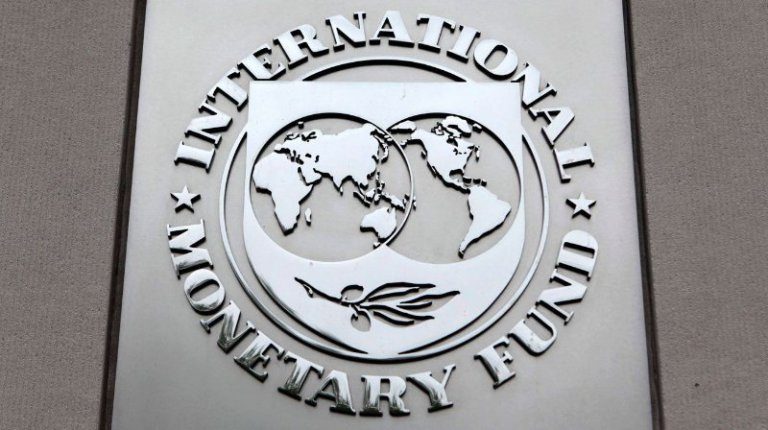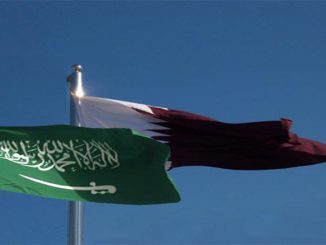
Egypt has finally secured the $12 billion loan from the International Monetary Fund
This week, the IMF approved a three-year $12 billion (11.16 billion euros) bailout program aimed at reviving Egypt’s struggling economy.
The Egyptian economy has been facing one of its harshest economic downfall in its history.
The country has been suffering a severe shortage in foreign currency as tourism and foreign investments which were among the main sources of foreign currency revenues have withdrawn as a result of political unrest and security instability.
Accordingly, al-Sisi regime worked hard to secure the IMF loan as a last chance to revive his wrecked economy.
But Euro News stated in its report titled: “Challenge and Hope: Analyzing Egypt’s loan from the IMF,” that can Egypt succeed in bringing down public debt and controlling inflation while also protecting the country’s poor?”
Euro News cited Richard Banks, consulting editor with Euro money for the Middle East and North Africa region saying, “I think that the IMF package – and it is a package, one must remember – will bring, of course, other multilateral, and another bilateral fund; it will bring an agreed framework for the direction of public policy [and that framework] is almost as important, because it is a way for international investors to change their perception of Egypt.”
He added that” Egypt has got deep structural problems, the whole subsidies system if not fit for what it’s meant to do. It is subsidizing products, not people. You need to give the money to the poor people; you need to make sure that the poor people have a minimum level and can survive and have education and healthcare. You do not subside gasoline or bread, you subsidize the people.”
Social Unrest: one of the challenges facing Egypt after IMF loan
Egypt has adopted an economic reform to meet the IMF qualifications.
On November 3, the Central Bank of Egypt floated the Egyptian pound and gave up trying to peg the currency to the US dollar allowing it to devalue by almost half.
On November 4, Egypt took another unprecedented decision, which has always been abandoned by former leaders in fear of public unrest, to cut subsidies for fuel leading to jump in prices, in addition to the introduction of the value-added tax to raise revenues.
The program also requires legislation to reduce Egypt’s public sector wage bill.
That is all needed to help get government spending under control.
However, as inflation hiked in Egypt,” everyday essentials are becoming unaffordable for many, which could spark further protests by Egypt’s people,” said Euro news.
Euro money’s Richard Banks said that this an important issue and that this is exactly the problem facing Egypt which is, “How much pain can the people take? The problem is that the people are used to paying prices that are not right. What you buy in Egypt with your Egyptian pound does not cost one Egyptian pound, it costs two pounds, or whatever.”
He added, “You’ve got to change that system. I think everybody understands that. The challenge is how do you do it without making people starve, essentially.”
“It’s about managing change and you are absolutely right, there is a risk that if the change is not managed correctly that you have another revolution. But as I said you could have a revolution every afternoon – it’s not going to solve the problem, guys.”
“The hope is the IMF loan will make Egypt more stable, not lead to further unrest”, as reported by Euro news.
Restoring the hard currency: is another challenge
Among the other challenges facing Egypt is to withhold its supply of foreign currency to have an abundance to be used in business.
This mainly aims to diminish the black-market phenomenon in order to keep the prices controlled and to prevent the shortage of foreign currency that occurred before.
Bloomberg cited Hany Farahat, a Cairo-based senior economist at CI Capital saying, “The disappearance of the black market will depend on banks’ ability to fulfill client demand for dollars, which should improve as rates become attractive and entice dollar-holders to dispose of their holdings,” said. He added,” I expect this to be gradual, likely to take months rather than weeks.”
Accordingly, Egypt is in need to every single dollar to maintain its foreign currency supply, however, Egypt is in a really bad position after Aramco -Saudi Arabian Oil Co.-halted shipments of oil products to Egypt indefinitely.
In October, Saudi Aramco informed the Egyptian General Petroleum Corp. in early that it would suspend supplies of refined oil products. Aramco had agreed earlier this year to provide Egypt with 700,000 metric tons of refined products each month for five years in an arrangement valued at about $23 billion.
In fact, Egypt, which relies on imports to meet its energy needs, faces higher costs for gasoline and other oil products after the government decided on to allow its currency to trade freely as a step toward stabilizing an economy weakened by a dollar shortage.
In this context, Blomberg cited London-based Ehsan Ul-Haq, an oil-market analyst at KBC Energy Economics, saying” “This leaves Egypt in a very difficult position – the pound flotation means the government will have to pay much more for its imports, and now it has to go to the international markets to secure its gasoil and diesel supplies on much more difficult payment terms.”
“I don’t think Egypt will be able to get similar conditions from any other countries in the region, ’he added.
As a result, Egypt is seeking to resort to tenders for meeting local demand.
Blomberg reported that Egypt signed “a memorandum of understanding to import crude from the State Oil Co. of the Azerbaijan Republic, known as Socar, to supply its refineries. The deal came after Egypt reached a deal with Iraq on Oct. 31 to form joint ventures to produce oil and natural gas.”
Tensions between Cairo and Riyadh have escalated as a result of Egypt’s divergent stances in sensitive issues to Riyadh.
Egypt has voted in favor of a Russian-backed draft resolution in the UN Security Council on Syria, which was opposed by Saudi Arabia.
As a result, Egypt’s stance has angered Egypt’s major Gulf backer which condemned Egypt’s vote and described it with the” painful” stance.
After the voting, the Saudi ambassador to the UN, Abdullah al-Mouallimi said, “It was painful that the Senegalese and Malaysian stance was closer to the Arab’s consensus than the Egyptian delegation.”
He also said that he feels pity for these countries that voted for the Russian resolution, stressing that his country will continue backing the Syrian people by all means.
Two days following the voting, Saudi state-owned oil company Aramco announced halting oil product supply to Egypt.



